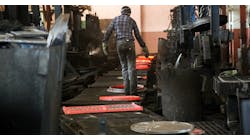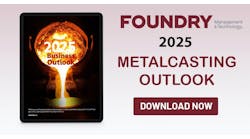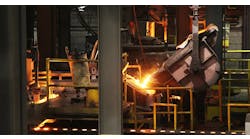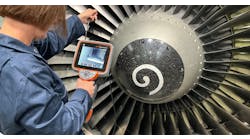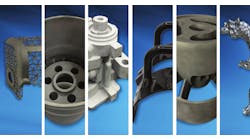Inflation progresses in stages, it seems, starting with policies that, one way or another, distort the energy balance in a complicated, mostly market-based economy. A perceived need to increase consumer spending often prompts administrators and legislators to institute tax cuts. A desire to redirect purchasing activity toward or away from particular suppliers may lead to tariffs on products, etc. It works, but it has other consequences too. Inflation accelerates the rate at which prices for goods and services rise. As I write, the annual rate of inflation in the U.S. is 8.3%, on average, much higher for some critical goods and resources.
The next stage shows inflation proceeds to politics, with different voices warning about the direction of economic indicators, and hectoring in rising volume those they aim to hold accountable for the economic failures that are still to come.
Now we’ve come to the practical moment of inflation, what clever commentators these days call praxis, when major economic players explain how inflation is changing their circumstances, confessing their problems and delivering their prospects. In mid-September Ford Motor executives said they anticipate paying $1 billion more than previously expected for materials and component parts during the third quarter, based on recent negotiations with suppliers. In addition to higher operating expense, the company will have to defer some revenue as it pushes some vehicle deliveries into the fourth quarter, due to ongoing parts shortages. (Ford did not alter its 2022 earnings forecast, but the effect of inflation on operations is evident in the guidance it is providing to investors.)
Recently a leader for one equipment manufacturer listed for me the various ways inflation is changing the outlook for his operations: as consumers reducing their purchasing activity erodes manufacturing demand. Weak demand puts pressure on manufacturing activity, which leads to reduced manufacturing revenue, which cuts into new capital equipment orders – which is the main concern for my source and other manufacturers.
Fewer orders means less demand for materials and parts – such as castings – and so on it goes. By this point, it hardly matters that the apparent cause of inflation was the excessive volumes of currency released into the economy to (you guessed it) cover cash shortages and shore up weak demand. We have an economy that is sufficiently market-based to be crushed by market reactions, but still regulated enough to be vulnerable to bad judgment by economic planners.
In that light, inflation is no more than bad planning – the unforeseen result of decisions that seemed at one time to be good ones. Is it right that Ford or its stakeholders, or any other manufacturer or retailer, has to accept now the results of those poor decisions? No, it’s not right but neither is it wrong. Inflation is a consequence, not a punishment. Almost no one wants to face those consequences but, in principle, absorbing higher costs or lower demand, or adjusting to higher interest rates is no different than finding cash in a coat pocket. You adjust.
And that need for adjustment, for reevaluation, is revealing of the actual origin of inflation. Inflation does not start with policies implemented to redirect the energy of the market. It starts from a baseline understanding of what is valuable – and that establishes for each of us what we are or may be willing to pay for particular goods. If an insurance premium rises, the reevaluation I must make is different in scope and in consequence than what I may consider about the higher cost of fuel or food, or entertainment.
All of this is quite ordinary and practical, but it does not seem so outside of the framework that inflation imposes on each of us. Inflation raises the consequences of our ordinary decisions, but it does not impose new requirements of us. Those liabilities are always with us.
But liabilities – costs, if you will – rise only in relation to the primary value of things we establish for ourselves. Ford Motor or any business issues guidance so that stakeholders will know, or recall, what values the decisionmakers there are setting. It’s a practical step, and a principled one. And one in which each of us should find value.

